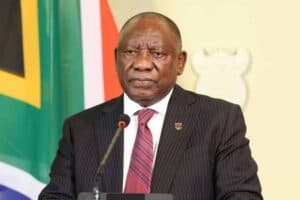Asking South Africans to switch off during Earth Hour is futile, as we are no strangers to power cuts.

This Saturday, Earth Hour falls between 8.30pm to 9.30pm.
But this year, the World Wildlife Forum (WWF) is ditching the symbolic switch off for Earth Hour in favour of calling for environmental action.
“South Africa is in the depths of an energy crisis which is why the need to take climate action is more urgent than ever,” said WWF SA spokesperson Andrea Weiss.
“We are no strangers to being left in the dark due to load shedding.
“So, when Earth Hour comes around on 26 March this year, we are asking our supporters to sign up for a global movement which is calling for a better future for our planet,” said Weiss.
This includes a better energy future to limit climate change by opting for renewables over fossil fuels.
Earth Hour remains the largest global citizen participatory event aimed at raising social consciousness in support of the environment.
“We have no time to waste. We are already seeing the impacts of climate change in our warming world,” warned Weiss
Lives and livelihoods around the globe are being affected as the result of more frequent extreme weather events, from heatwaves to floods and wildfires.
“We need to realise that what we do to our planet, we do to ourselves. We are shaping our future with every action we take, and our current experience is just a foretaste of what is to come if we do not act now.”
Local and world governments have been sluggish in implementing policies aimed at curbing climate change.
A Special Report on Global Warming, Published by the Intergovernmental Panel on Climate Change (IPCC) on 8 October 2018 revealed that global warming will likely rise to 1.5 °C above pre-industrial levels between 2030 and 2052 if warming continues to increase at the current rate.
“This means that the most important action we can take right now is to work together to raise public awareness, and to hold the private and public sector accountable for fulfilling their climate commitments,” said Weiss.
WWF South Africa CEO Dr Morné du Plessis said that our energy crisis is connected to the climate crisis and the way in which we treat nature.
“Earth Hour aims to increase awareness and spark global conversations about this planetary crisis and what we can do to change our trajectory for a better future for people and nature,” said du Plessis.
On 26 March, between 8.30 to 9.30pm during Earth Hour, we will mark the symbolic hour by joining a global conversation on the most pressing environmental issues of the day.
NOW READ: World cities go dark as Earth Hour climate campaign circles globe






